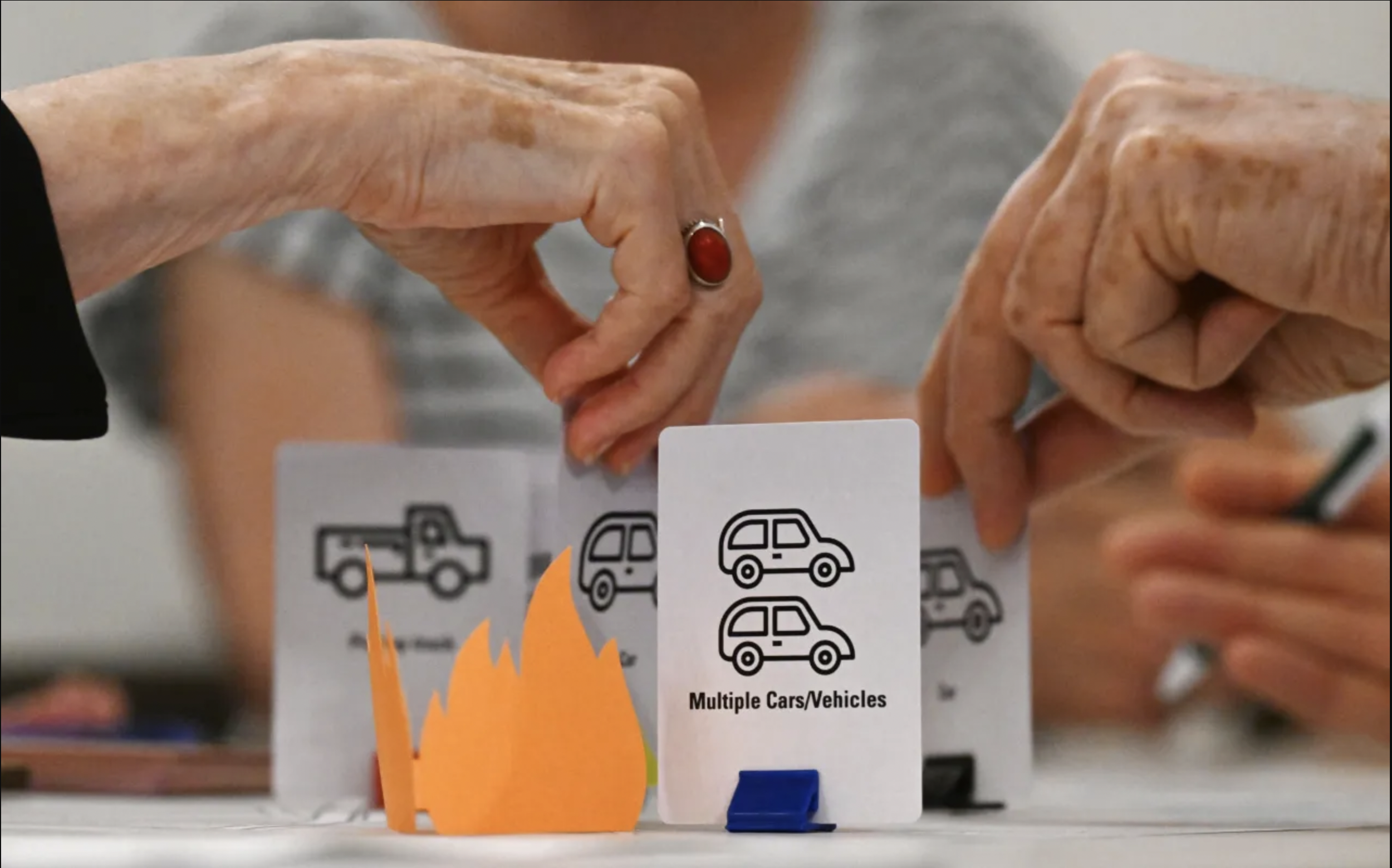
About the Game
Wildfire preparedness can seem intimidating, but it doesn’t have to be. Using the strengths of a board game format, our team has transformed wildfire preparedness into an engaging, accessible, community-led experience, where safety goes from afterthought to top of mind. The game helps community members think about wildfire evacuations and practice community response to wildfires in a low-stakes, investigative environment, so that they’ll be ready if the real thing comes.
This game was created by Tom Maiorana with collaboration from community members and an interdiciplinary team from UC Davis, UC Berkeley and UC Santa Cruz. Initial concepts were funded by a 2019 Seed Fund Award from CITRIS and the Banatao Institute at the University of California. Our team then received a Stage 1 Award from the National Science Foundation’s CIVIC Program. Most recently, our project has grown with support from the National Science Foundation’s Smart and Connected Communities grant.
So far, we’ve worked with several communities, such as Marin County and Tomales, CA, and are always looking to partner with more!
Our Approach
Community resilience in the face of dangerous events requires a variety of changes, from personal behaviors to regional policies and infrastructure. Despite the high stakes, development in this realm has proven slow and illusive. This project addresses that challenge by utilizing the practice of prototyping (commonly used in product and service design) as a way to quickly explore alternative responses to events that threaten the lives and fabric of a community with minimal risk.
The game is designed with six key principles in mind:
Engaging: The experience should be compelling enough for players to want to play, share and talk about the experience.
Instructive: The players gain a better understanding of how to evacuate through playing the game. Every element of the game must be vetted by fire and evacuation experts.
Localized: The “game world” should offer an accurate representation of the player’s location, neighborhood, etc. so that they are better prepared in an actual evacuation.
Accurate: The games will utilize data based on simulations (traffic and fire) or commonly held best practices.
Accessible: The game should be easily distributed and work for community members with a range of ages, languages, income levels, technology access and experience.
Integrated: The game will be one part of a multi-faceted approach to wildfire preparation and response.
These principles function as the DNA of the project and help the team make decisions throughout the development process.













